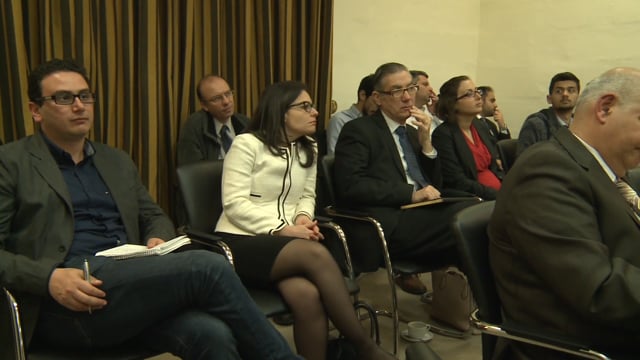[WATCH] Government plans voluntary second pillar pension scheme
Finance minister announces plans to fiscally incentivise employers to set up second pillar pension schemes • PN welcomes government's U-turn



"RegretThe government plans to introduce a voluntary and incentivised second pension scheme, finance minister Edward Scicluna announced.
"We want to promote both second pillar and third pillar pension schemes," Scicluna told a core group meeting of social partners and MEUSAC representatives. "While any such scheme will be voluntary, we will provide employers with fiscal incentives to establish them."
Scicluna’s announcement represents a U-turn from the Labour government, who had previously warned that ‘second pillar’ occupational pensions would cripple lower-income families.
The second pillar scheme, which has been championed by the Opposition, would require employers to place a percentage of their employees' monthly income into personal pension accounts.
Prime Minister Joseph Muscat had previously rejected the second pillar proposal, on the grounds that several people will not be able to carry on living decently while dedicating a portion of their income towards a pension fund.
The PN in a statement welcomed the government's change of heart, reiterating that second pillar pensions are necessary to ensure the sustainability of Malta's pension system in the context of an ageing population.
"Regrettably, the government had been taking a very populist approach to the responsible call for a second pillar system, without offering any sound alternatives to ensure the sustainability and adequacy of pensions for future generations," PN deputy leader Mario de Marco and MP Paula Mifsud Bonnici said in a joint statement.
Scicluna was addressing the core group meeting ahead of a closed discussion on Malta’s National Reform Programme for 2016, which presents the government’s policies to reach its set EU2020 targets. This year’s programme is due to be submitted to the European Commission by mid-April.
The finance minister said that the government has adopted a long-term strategy to gradually increase pensions, bearing in mind their weight on public finances.
“Of course, I understand that current pensioners are only interested in the present, but we must speak in terms of long-term sustainability,” he insisted. “We don’t want the deficit to explode as a result of higher expenditure on pensions.”
He similarly dismissed calls for the state to instantly distribute wealth more fairly, warning that government revenue has not yet reached a high enough level.
“The reality is that government revenue has not yet reached a high enough benchmark for wealth to be distributed fairly in a smooth manner,” he said. “Above all, Malta must maintain its competitiveness, at a time when competition by other Mediterranean nations such as Cyprus, Greece, and Spain is growing fiercer. This is a delicate topic, but if Malta loses its competitiveness, then it will soon lose everything and government revenue will plummet.”
Malta registered a historic 6.3% economic growth last year, with its GDP amounting to €8,796.5 million. However, Scicluna noted that this was largely due to a 21.4% increase in gross fixed capital formation - due to the sudden launch of several EU-funded projects ahead of the deadline to tap into the structural funds.
Scicluna admitted that the government must step up its game on research and development, which must make up 2% of Malta’s GDP according to EU2020 targets. It is currently only makes up 0.4% of GDP.
“2% of the GDP is an ambitious target, but we must reach it if we want Malta to reach a plateau of high and sustainable economic growth. After all, research and development is associated with modern countries.”


.png)

.png)



.jpg)




.jpg)






.png)


